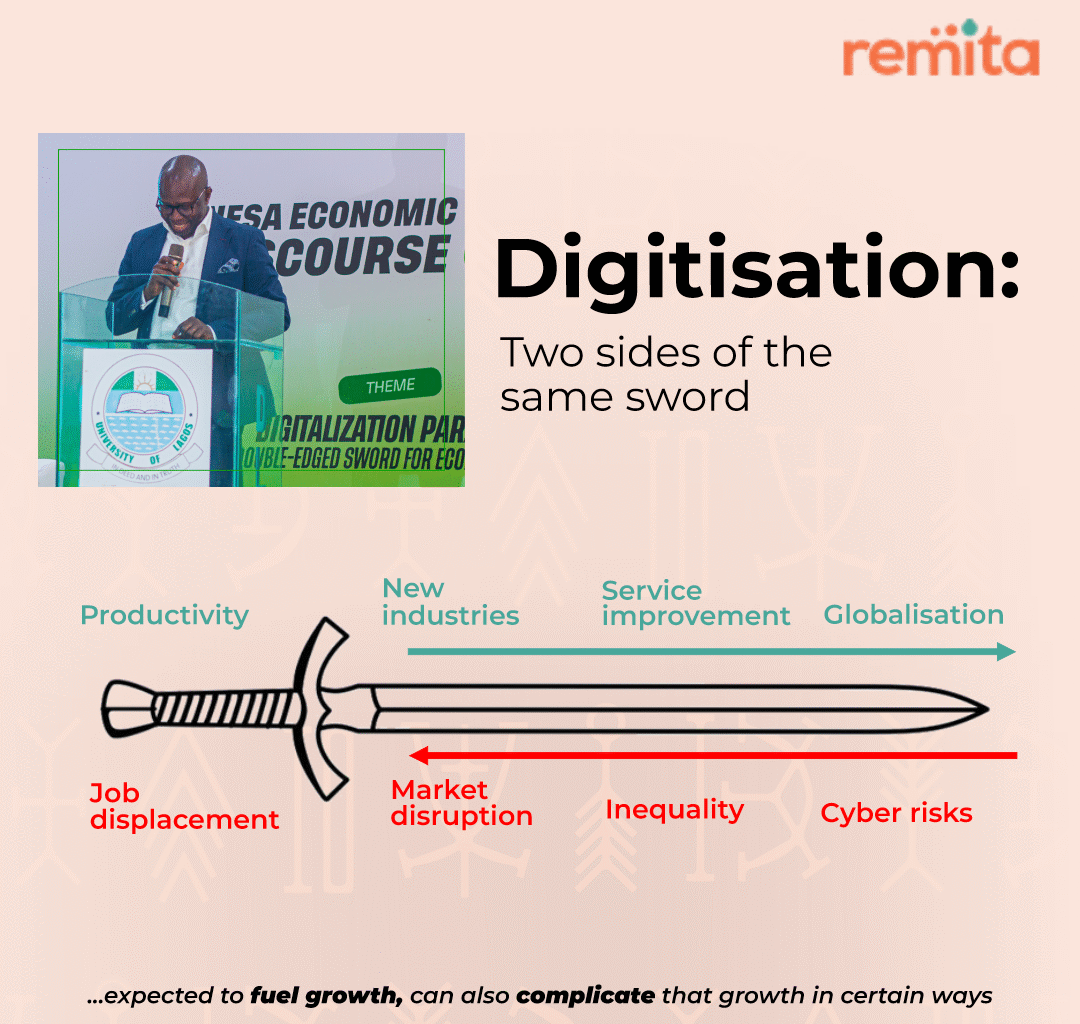We live in a world where digital technology is woven into every aspect of our daily lives. From ordering food and paying bills to running businesses and catching up with friends, we are more plugged in than ever. That tiny device in your pocket? It holds the power to transform your life, or quietly limit it. That is the paradox of digitalization.
On one hand, the impact of digital technology has been nothing short of revolutionary. Entirely new industries have emerged. Access to essential services like healthcare and education has improved. Markets that were once closed off are now just a tap away. For instance, in Nigeria, fintech innovation has fueled significant financial inclusion, now at 74% (EFInA, 2023), and attracted over $3 billion in startup investment since 2010 (Briter Bridges, 2023).
But this same digital wave also has an undercurrent.
On the other hand, it is disrupting industries, displacing jobs widening the digital divide. Moreso, digital fraud is on the rise, misinformation spreads like wildfire, and more people are struggling with screen addiction. The same tools that empower can also exploit. Left unchecked, they fuel inequality instead of inclusion.
This is the double-edged sword of digitalisation.
Take a moment to think about how you have used your phone today. Did it serve you, or distract you? Did you scroll endlessly through social media, or did you use that time to pick up a new skill, connect with a client, or move your business forward?
This question matters more than ever because industries are transforming fast. Farming now includes drones and precision technology. Banking is done without branches. Classrooms are now virtual. Doctors consult through video calls. Every shift brings new tools, new skills, and a new definition of what it means to be “employable.”
So how do we stay relevant in this fast-moving digital world?
First, we must commit to continuous learning. Digital skills like coding, design, data analysis, and cybersecurity are not just optional anymore; they are foundational.
Second, we need to build. Start that podcast you have been thinking about. Launch that blog. Create that app. The digital economy rewards action, not intentions.
Third, we must connect. Join communities of developers, creators, and tech professionals. These spaces not only share knowledge, they shape the future.
But perhaps most importantly, we must advocatefor a more inclusive digital economy. One where rural communities have broadband access, where schools teach future-ready skills, and one where ethical standards protect all.
This is our responsibility, not just as individuals, but as business leaders, educators, regulators, and policymakers. The digital economy will grow either with us or without us.
The next billion-dollar innovation may not come from Silicon Valley. It might emerge from a small town in Nigeria, coded on a refurbished laptop, sparked by a midnight brainstorm during a data bundle-saving session.
So I leave you with this: Don’t just scroll. Solve.
That next tap, that next search, that next keystroke, could change everything. For you. For your community. For the world.
Excerpts from the keynote delivered, DeRemi Atanda, MD/CEO, at NED 8.0, the flagship annual forum of the Nigerian Economics Students’ Association (NESA), UNILAG Chapter.

